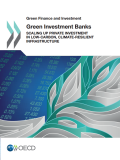
This report provides the first comprehensive study of publicly capitalised green investment banks (GIBs), analysing the rationales, mandates and financing activities of this relatively new category of public financial institution. Based on the experience of over a dozen GIBs and GIB-like entities, the report provides a non-prescriptive stock-taking of the diverse ways in which these public institutions are catalysing private investment in low-carbon, climate-resilient infrastructure and other green sectors, with a spotlight on energy efficiency projects. The report also provides practical information to policy makers on how green investment banks are being set up, capitalised and staffed.
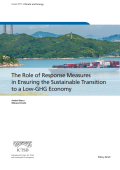
The increasingly interconnected nature of the global economy means that the impacts of climate change mitigation measures, or response measures, are not confined within the borders of countries implementing them. Such impacts will become of even more and growing importance under the decentralised and increasingly ambitious new climate regime. This policy brief explores the issue of response measures in the context of the post-Paris climate regime from a practical and policy-relevant perspective, examining different options on how the issue may evolve.
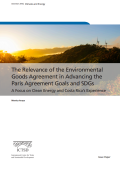
The purpose of this paper is to explore the potential role of the Environmental Goods Agreement (EGA) under the auspices of the World Trade Organization (WTO) in supporting the objectives of the Paris Agreement and the sustainable development goals of 2015, paying particular attention to potential benefits for developing countries. It analyses whether and how joining the EGA could bring benefits to developing countries that might be able to access clean energy technologies at a lower cost.
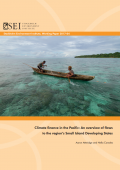
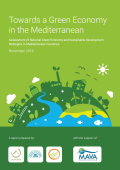
This report presents the results of a review exercise covering Green Economy (GE) strategies and Sustainable Development (SD) policies in almost all Mediterranean countries. An extensive literature review was conducted over a three-month period followed by a methodological assessment of the findings which was complemented by an on-line survey addressed to key regional and national GE/SD actors that brought in useful insights on what is happening on the ground in the countries. Based on these findings and the valuable inputs of an expert workshop that took place in Morocco (Tangier, 20 July 2016) this document proposes a number of concrete recommendations that aim to accelerate the much needed transition towards a Green Economy in the Mediterranean region.
